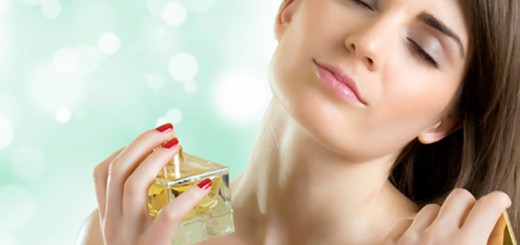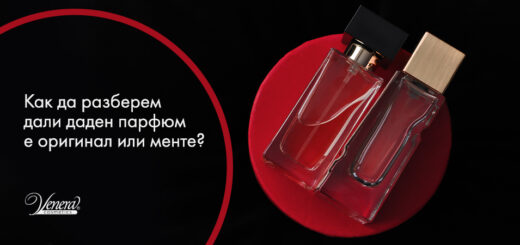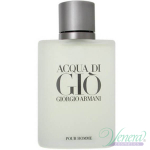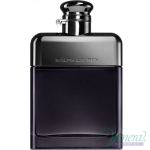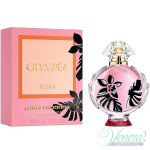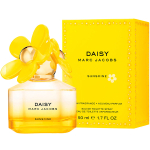Interesting facts about perfumes – specifics and curious facts about the scented bottles that bring us the desired feeling of style and beauty
We all know that perfumes are a constant part of our everyday lives – we use them every day and on all occasions. It’s almost unthinkable to go outside without putting on some perfume. But, are we aware of some peculiarities and curious facts about the scented bottles that bring us the desired feeling of style and beauty? Let’s find out…
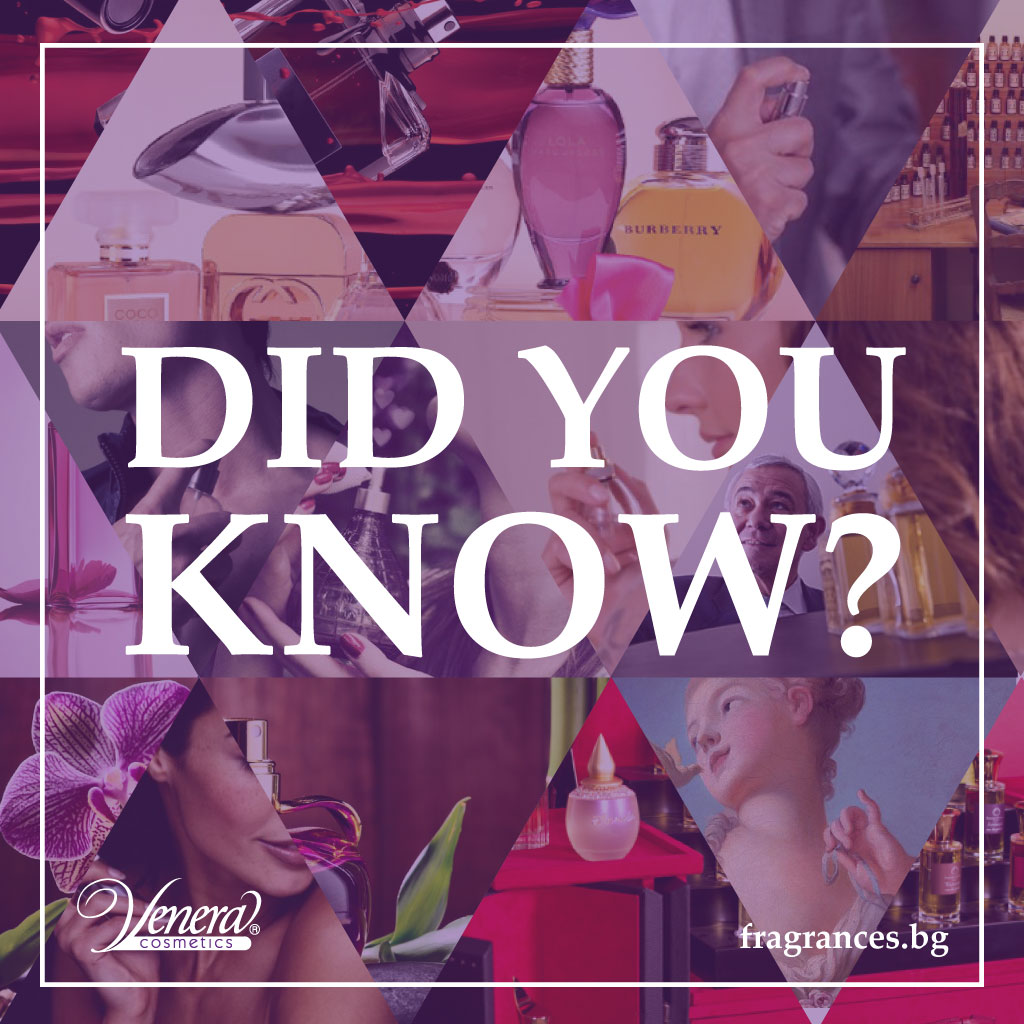
Did you know that:
- The history of perfumes stretches way back in time – there are archeological excavations that prove the use of perfumes from 4000 ago. This means that perfumes are twice as old as Christianity, for example!
- In the past perfumes used to serve as a cover-up of unpleasant odors coming from unwashed bodies – the grubby, as per the contemporary concept, aristocrats, bathed quite rarely (sometimes even months passed by before they had a proper bath), so perfumes were their weapon against unpleasant bodily smells.
- The first contemporary perfume was… ingested! The „Hungary Water” perfume, created in 1370, is considered the first contemporary perfume, as there was alcohol in its composition (brandy). In order to get the best out of the perfume, except for applying it on the skin, you should also drink it! This practice would be a rather expensive experience nowadays, given the high prices of today’s perfumes…
- It’s not easy to create a perfume – a good perfumer is known for his olfaction. One of the tests that beginner perfumers have to take is quite impressive – they are given a scent that consists of up to 250 different notes and they have to specify each one of them!
- Rubbing your wrists is wrong! It’s amazing, but it’s a fact – the well-known habit of putting perfume on your wrists and then rubbing them energetically actually leads to breaking the perfume structure. Apply on the inner side of the wrists and elbows instead, as well as behind the years and in the middle of the clavicle and let the fragrance “breathe”.
- Men’s perfumes are worn by women as well – we all have at least one example of a woman who likes wearing men’s fragrances. It’s an interesting fact that this is not a rare practice – about 30% of all women around the world use men’s fragrances!
- The same fragrance smells differently on different people – the reason for this is that different people have different skin – there’s pH, humidity, hormones, as well as many other factors. Don’t buy a perfume if you haven’t tested it on your skin! The fact that you like the way it smells on somebody else doesn’t mean you’ll like the way it smells on you.
- The most expensive nose in the world belongs to a… perfumer! It’s understandable, just like an athlete would insure his legs as they bring him profit and glory, a perfumer would insure his nose. That’s what Jean Charles did – according to some resources, his nose was insured for USD 1 million! An even more interesting fact about him is that, towards the end of his life, he totally lost his olfaction, which hasn’t obstructed him from creating perfume masterpieces like Miss Dior despite his condition – just like Beethoven continued creating music after the loss of his hearing!
- Emotions can be smelled – probably a remainder of our past when we used to heavily rely on our olfaction to survive, this ability serves us well even today – among the emotions we can feel with our nose are fear, happiness, and even excitement. Men can even smell when a woman is ovulating!
- Perfume and prestige – in the 17th century, perfumes were so expensive that they were often passed down as heirlooms. A family’s prestige could be measured by its collection of perfume oils.
- The oldest “perfume factory” – the ancient city of Paphos in Cyprus was known as one of the world’s first perfume capitals. Archaeologists have discovered a perfume production facility in Cyprus that is over 4,000 years old. It contains tools and vessels for distilling aromatic oils, which proves how advanced they were in this field even in ancient times.
- The first perfumed soap – the first perfumed soap was created in ancient Rome. The Romans loved scents and often included perfume oils in their daily hygiene.
- Perfumes in medicine – during the Middle Ages, people believed that perfumes could protect against diseases such as the plague. Doctors often wore scented masks to protect themselves from “contagious air”.
- Perfumes and Space – NASA created a perfume called “Odor of Space” to simulate the smell of space. Astronauts describe the scent as a combination of gunpowder, burnt meat and metal.
- World perfume capital – Grasse, a small town in the south of France, is known as the “perfume capital of the world”. Roses, jasmine and other flowers used in the most prestigious fragrances are grown there.
- Sea notes – sea breeze or ocean notes in perfumes are not extracted directly from the sea. They are created with synthetic molecules such as Calone, which recreates the freshness of water.
- The scent of rain – the smell of rain, known as petrichor, is also popular in perfumery. It is reproduced with synthetic molecules that mimic the combination of damp earth and ozone.
- Pheromones in perfumes – some perfumes contain ingredients that mimic pheromones – chemicals associated with attraction. For example, musk is known for its “alluring” properties.
- Fragrances and age – a person perceives smells better when they are younger. As they age, their sense of smell decreases, which is why older people often prefer more intense and strong scents.
- Perfumes smell differently in space – astronauts aboard the International Space Station tested how perfumes smell in zero gravity. The results show that scents are perceived differently in space.
- Perfumes and climate – fragrances “behave” differently depending on humidity and temperature. In warm climates, perfumes evaporate faster, while in cold climates, scents last longer.
- Perfumes and espionage – during World War II, spies used perfume bottles to hide secret messages or small objects. These spy devices looked completely innocent.
- The biggest consumers of perfume – France is known for its perfumery tradition, but Saudi Arabia and the United Arab Emirates are among the largest consumers of luxury perfumes in the world.
- The largest perfume collection – the largest private perfume collection in the world contains over 10,000 different scents. It belongs to a perfume enthusiast from Dubai.
- Perfumes that “attract” money – there are scents that are believed to bring good luck or financial well-being. They often contain notes of patchouli, which is associated with prosperity in some cultures.
- Perfumes and zodiac signs – many people believe that certain scents are associated with different zodiac signs. For example, Leos often prefer warm and passionate scents, while Pisces are attracted to fresh and aquatic notes.
- The rarest and most expensive ingredient in perfumery – Iris oil is one of the rarest and most expensive ingredients in perfumery. It takes about 6 years to extract it – three to grow the plant and another three to “ripen” the roots before they are distilled.
- The strangest scent – there are perfumes with unusual smells, such as the scent of rubber, gasoline or even blood. However, these scents are often combined with others to create a unique experience.
What is the most interesting fact that you know about perfumes? Share it with us in the comments below!

